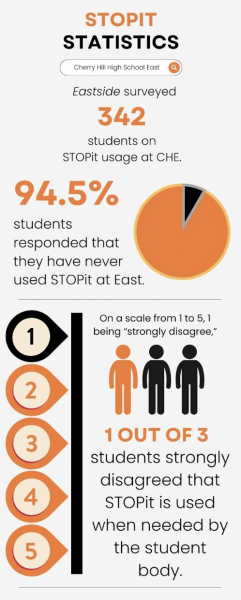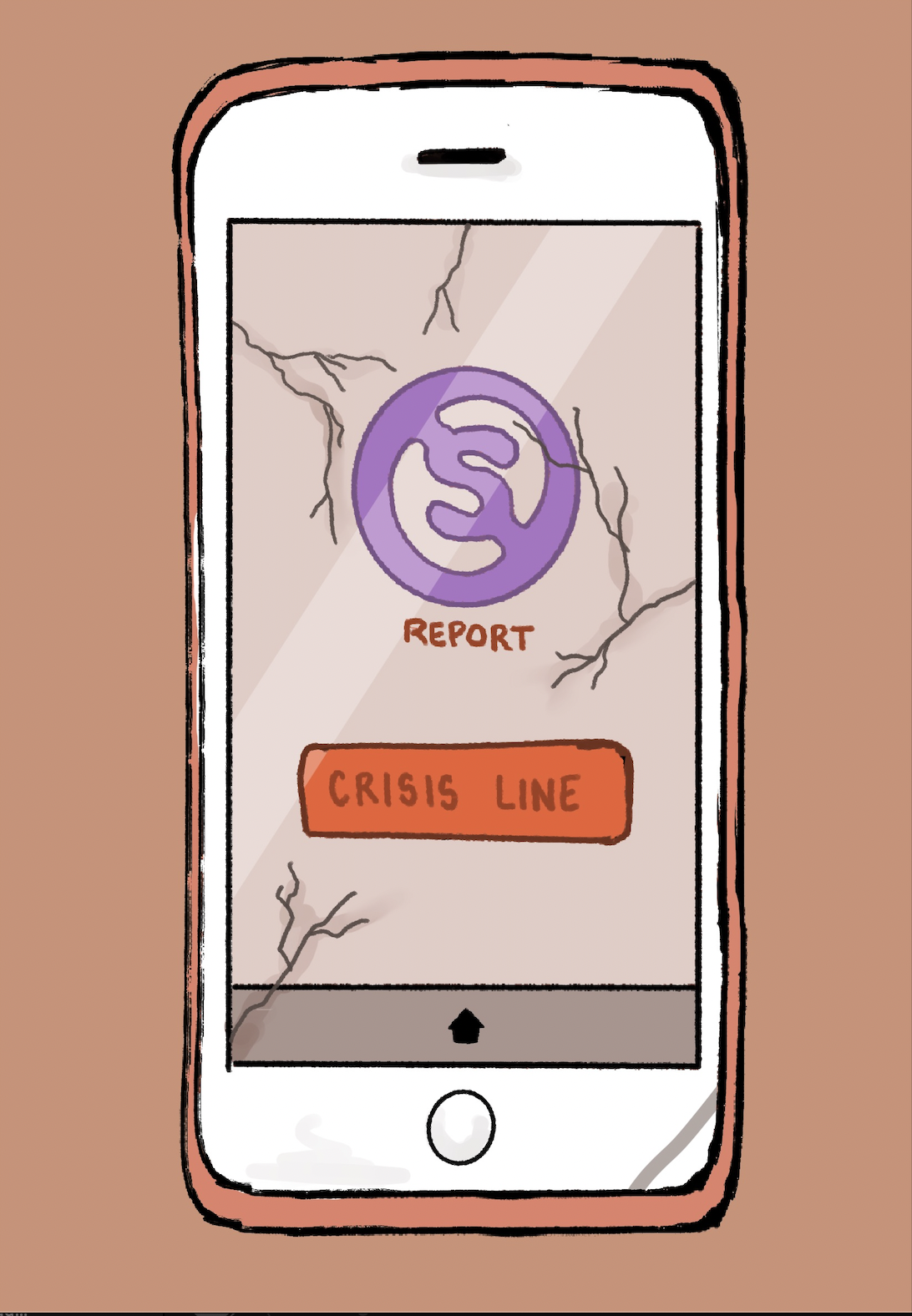STOPit is an app for students to report bullying, particularly anonymously. The 2010 New Jersey State Law, Anti-Bullying Bill of Rights Act, requires that Cherry Hill Public Schools have “a procedure for reporting an act of harassment, intimidation or bullying, including a provision that permits a person to report an act of harassment, intimidation or bullying anonymously; however, this shall not be construed to permit formal disciplinary action solely on the basis of anonymous report.”
In the past, specifically in response to the Eastside November 2022 doubletruck, highlighting discrimination at Cherry Hill High School East, administrators have urged that students could report concerns through the anonymous STOPit app.
“We’ve had a number of different people that have had positive outcomes because we have STOPit. In the same way that a class- room has passive response systems like Google Forms and Formative, STOPit is just another way for us to get information about our school community without being too invasive,” said Mr. Ted Beatty, one ofEast’s assistant principals.
What Beatty says does not necessarily ring true among all students. From a broad user perspective, on the Apple App Store, STOPit is reviewed as 1.6 stars out of 5, a designation derived from more than 1,800 ratings. These poor App Store ratings reflect the fact that despite its positive intent, many youths are not taking STOPit’s services as seriously as school administrators wish they would.
These attitudes were reiterated in a survey of 343 East students. More than 29% of the survey responses strongly disagreed that “STOPit is used when need- ed by the student body,” in comparison to 5.5% that strongly agreed.
“STOPit is employed by the school primarily to maintain the appearance of having an active reporting system … It appears that STOPit is being utilized as a means to divert attention from the genuine issues of discrimination, allowing administrators to assert a proactive stance without adequately addressing the root problems,” wrote one student.
Though the administration has made many attempts to promote the use of STOPit, their efforts have proven feeble. The school sends out daily emails publicizing the services that STOPit offers. Yet, 30% of students surveyed said they had not even heard of East’s use of STOPit prior to this survey. Multiple students recalled hearing about STOPit in middle school, but never by teachers or administrators in high school. 94.5% of the students surveyed have never used STOPit before at East. Despite this, students surveyed reported experiencing harassment, but not using STOPit to report their experiences.

This could be attributed to many factors, one large example being the jokes many students tell about the app.
“STOPit is more like a joke than something you would use to report something. I’ve heard a lot of people teasing each other like ‘Ooooh, I’m gonna report you on STOPit’ as a joke in response to something very minor,” wrote one student.
However, East administrators have not seen many complaints rooted in attempted comedy in recent years.
“Initially, the launch was…not taken seriously by the students…and we would get a number of ‘off the wall’ kinds of statements. We also got some legitimate concerns that were raised at the time. But I would say, in the last several years, … the vast majority [of reports] are sincere concerns,” said East Principal Dr. Dennis Perry.
There is also a larger stigma sur- rounding the app, especially because many people believe it is associated with “snitching,” pushing them away from using the app when they need to.
“I’ve never used the STOPit app personally, but I have had some experience with harassment. I believe most students don’t use the STOPit app even when they’re being harassed because of the stigma that’s associated with ‘snitching.’ Instead, most people probably resort to either handling it themselves, which often results in further conflict, or just keeping it to themselves and allowing the harassment/bullying to continue,” wrote Elias Kang (‘27).
Furthermore, Erin Watkins (‘27) said that for her, STOPit did more good than harm.
“I first heard about it in 7th grade when they announced it at an assembly when I was in middle school. Everybody made fun of it at first and I did too, but then later people actually started using it,” Watkins said. “My one friend wouldn’t eat lunch and me and all my other friends didn’t know what to do because we didn’t want to tell her parents or do anything and we didn’t want to confront her about it… Some- body reported her about not eating and she was sent to a hospital.”
However, even Watkins agreed with the stigma of STOPit being a tool for “snitching”—even though the premise of the app is that it is supposed to be anonymous.
“If it was one of my friends and they were doing something bad, like vaping, I wouldn’t want them to know it was me. If it was someone I was close to, they would probably know it’s me,” said Watkins.
Still, East administrators remain hopeful about STOPIt’s value within the East community.
“I hope that students are finding it useful…I think if more [students] utilized it, there would be more information about how we can better support our students at school,” said Perry.




